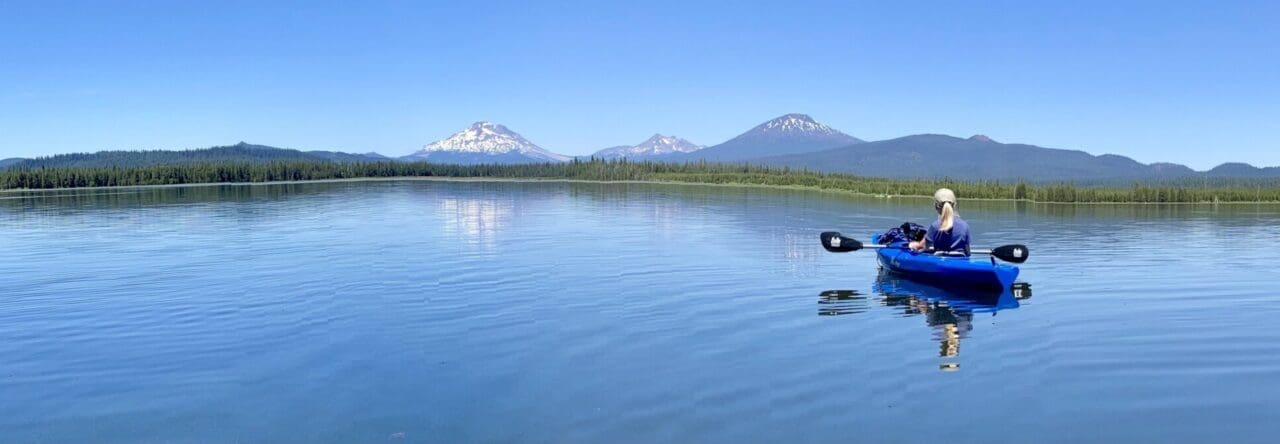Standing at my window yesterday, I noticed a tiny snowflake that landed on the deck railing. It captured my imagination. How it must have made its journey down from a cloud and gave no thought to being alone, but obediently plopped down on the deck railing — doing what it was designed to do.
This morning, underneath all this mass, there are those first brave snow flakes, holding up their end of the bargain.

25th day of spring in central Oregon
Which begs the question, are you and I doing what we were designed to do? And how do we know what we were designed to do?
I’ll take a stab at answering those questions by asking a few more:
1. What are our passions and interests? What is it we do that makes us lose all track of time? For me, it’s writing. I can write for hours in a coffee shop surrounded by the quiet hum of voices, and then discover three or four hours have passed. Do you love working with people? Designing rockets? Running marathons? Sewing quilts? Building houses or decorating them? Caring for the elderly, the ill, the injured? Digging in the dirt; arranging flowers? Solving problems? Making jewelry? Teaching others how to eat more nutritionally? Teaching others how to read, how to speak English?
What it is that ignites our souls, that gets our creative juices flowing and sometimes keeps us awake at night — thinking, planning.
2. What are our skills and abilities? Hubby had this brilliant analytical, problem-solving brain, which made him an excellent Data Processing Manager. He referred to himself as a realistic pessimist. I, on the other hand, am way too organized and optimistic for my own good. This is why we made a great team. When it came to our non-profit, he designed websites; I wrote for grant funding and booked speaking engagements. Are you organized and detail-oriented? More on the creative right-brained side? Or do you have strong left-brain skills?
We need to take note of our skills and natural abilities and let them guide us toward a more rewarding life.
3. What are our life experiences? Hubby and I traveled the country for a few years sharing what we were doing to live well with cancer. Oncology personnel pointed out that our message was similar to what they were encouraging their patients toward, but the fact that we were *walking the talk* seemed to offer more credibility.
Do you have a medical background and would make an excellent candidate for medical missions trips to underdeveloped countries? Did you manage a hotel, which would give you needed expertise in opening your own bed and breakfast? Are you experienced in web design, which would make you an excellent volunteer helping young entrepreneurs set up websites?
We should analyze our life experiences and what it is we love to do, and then go chase down purpose.
4. Are we compelled to continue forward, no matter the setbacks? You don’t want to know how many rejection letters I’ve received through the years. Yes, I’ve had my share of acceptance letters, but so many more rejection letters. So many letters that, in essence, said, You can’t write. What are you thinking? But I was (and am) stubborn enough to persist, because I am compelled toward earning a living from what I love doing.
We should ask ourselves how we would feel if we gave up on all attempts to achieve our goals.
This from Derek Walcott:
Measure the days you have left. Do just that labour which marries your heart to your right hand.
What have we been given that needs to be shared with the world? Here’s hoping you’re as foolish as I am to believe it’s not too late to pursue those rather large visions.
Has loss, or setback, or poor health or the passing of time caused you to set aside your goals? What steps can you take to get back on track?
P.S. If you found this post helpful or inspirational, please share, tweet, or pin!

Leave a Reply